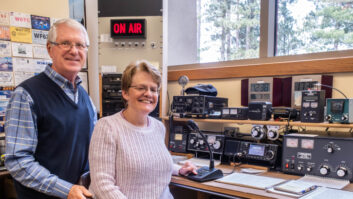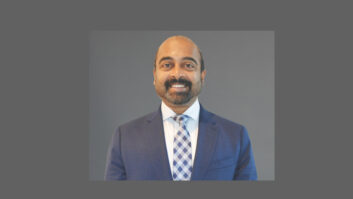
During my tenure in rock radio, I observed a pattern of behavior common among newly minted rock stars: When they were at the beginning of their career with their first hit song, few of them conceived of the possibility that what they were experiencing actually was the peak of their career.
This naïve perspective was fueled by record labels, friends and groupies, who encouraged lavish vacations, purchases of expensive bling, stays at five-star hotels, meals at the best restaurants, transportation by limo — not to mention no-holds-barred, hedonistic partying.
Having watched this scene numerous times, I couldn’t help wanting to say something to those I interviewed, or had the chance to spend a small amount of time with at a concert.
As you might expect, the few times I attempted a conversation about the subject, I failed.
A youth business
Why am I telling you this? Because it’s easier to hear about the blinders other people wear than the ones we put on ourselves.
This is a wake-up call to those who believe they will have the same job in radio for their entire career.
How many air personalities are employed after age 40? Sure, you know a couple, but they are the exception; and now with fewer jobs, there are fewer of them.
Radio has long been a youth business, so for most people who are on the air, it’s vital to find other careers to age into.
Law school at night? Public relations? Real estate? Graphic design? If voice-overs is your answer, you’re about 10 years too late to that party. The market is glutted with great voices who have high-end production skills.
Note to personalities making exceptional salaries: Your run eventually will end. Your audience will age and management will challenge your relevance. Maybe a new PD won’t like you or your sales department won’t be able to generate the money it takes to make your ratings valuable.
Any or all of those things are enough to lock you out of the control room. Are you putting away enough of your big salary over the years that your financial future won’t be a concern? I’ve seen guys who made over $200k a year live up to or beyond their means and find themselves out of work with small savings and spouses with big expectations.
Sales people are often under the misperception that they will be hired right away to sell any product just because they can sell radio.
I’ve heard, “If I can sell air, I can sell anything” so often that I can almost predict when someone’s going to say it.
Reality check: Without experience in selling a specific commodity — like medical equipment — it’s a challenge to break into a new field selling tangible products. Prepare the way through making contacts and learning as much as you can about the specific product or area you can see yourself selling.
Protect the future

iStockphoto/©Niilo Tippler As I’ve stated many times in this column, the smartest (and sadly the most unrecognized) employee at a station or cluster is the engineer.
If you’re the resident genius, have you protected your future by becoming fluent in IT or a related field, so that if your broadcast path evaporates due to continued consolidation, lack of funding or a decision to hire contract engineers, you have an out? A neighbor’s son, fresh out of college with an IT degree and Microsoft certification, recently nailed his first job for $55k.
Is there a field in which you can work part-time, perhaps evenings or weekends, where you can learn what you might enjoy doing beyond radio? Discuss with family and friends and make a list. It’s a lot easier to find part-time work these days than trying to find a full-time position.
Please permit me now to talk you off the ledge. If you have a job in radio that you love and it pays well, I am not suggesting you make a radical move today, or even tomorrow.
Stay on the radio ride for as long as you can, but do so intelligently by planning your career moves. If you want to remain in radio for the next few decades, it may mean moving to another town — again and again. It may mean changing roles in the business — like going from air talent to program director. It may be moving from commercial broadcasting to non-commercial broadcasting.
But it may also mean eventually moving out of the industry and into a new life. Take control of your future by giving yourself options. In the words of the famous biblical sage Hillel, “If I am not for myself, who will be? And if not now, when?”
The author is president of Lapidus Media. Write him at[email protected]. Comment on this or any article to[email protected].












